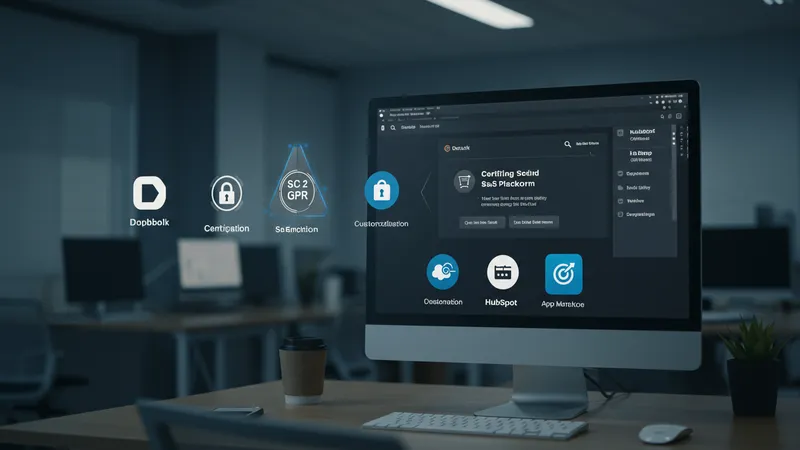
SaaS Solutions For Businesses: Driving Efficiency And Innovation
SaaS Security, Customization, and Integration Considerations
Security is a foremost concern for organizations deploying SaaS solutions. Providers like Dropbox and Zendesk invest heavily in encryption protocols, access management, and compliance certifications such as SOC 2 and GDPR adherence. These safeguards help protect sensitive business data against unauthorized access and cyber threats, making SaaS platforms suitable for even regulated industries.

Customization options allow SaaS platforms to fit diverse workflows. Salesforce and HubSpot, for instance, provide extensive customization through modules, automation workflows, and even proprietary app marketplaces. This flexibility supports industry-specific needs, enabling businesses to design unique solutions without the complexity of building custom software from scratch.
Integration is another driving force for SaaS adoption. Through APIs and prebuilt connectors, platforms like Slack, Asana, and Trello can exchange data seamlessly, eliminating redundancy and manual data entry. This interoperability ensures that information flows effortlessly across departments, breaking down silos and fostering a unified business environment.
As businesses increasingly rely on multiple SaaS tools, integration strategies are crucial for maintaining scalability and performance. Regular evaluation of SaaS compatibility and data portability ensures that organizations retain ownership and access to critical information even as platform usage evolves. Selecting providers with a proven history of supporting integrations reduces the risk of workflow disruptions during system upgrades or vendor transitions.